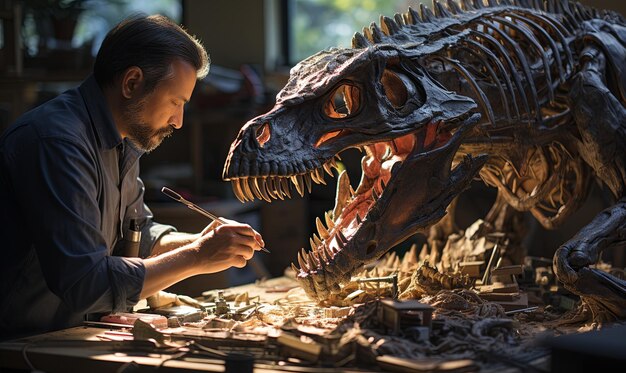What Does It Take to Become a Paleontologist?
Embarking on the journey to become a paleontologist requires dedication to education and specialized training. Typically, aspiring paleontologists begin with a bachelor's degree in geology, biology, or a related field. This foundation lays the groundwork for understanding the complex processes that have shaped our planet and its ancient inhabitants over millions of years. Following this, many pursue a master's degree to gain deeper knowledge and research skills in paleontological methods and fossil analysis. The pinnacle of academic preparation often involves earning a Ph.D. in paleontology or a related discipline, where students conduct original research, usually taking five to six years.
Accredited programs offer hands-on experience through fieldwork, laboratory research, and internships, vital for comprehending both theoretical and practical aspects of the field. While specific certifications or licenses for paleontologists aren't typically required, those seeking careers in academia or advanced research settings benefit from continuous learning through workshops and professional organization memberships. Successfully navigating these educational milestones equips future paleontologists with the expertise to explore past life on Earth, unlocking mysteries that span eons.
Education Pathway to Becoming a Paleontologist
- 🎓 Bachelor's Degree: Major in Geology, Biology, or Earth Sciences
- 🎓 Master's Degree: Specialize in Paleontology or Earth Sciences
- 🎓 Doctoral Degree (Ph.D.): Conduct original research in Paleontology
- 🔍 Fieldwork & Internships: Gain practical research and excavation experience
- 📚 Professional Development: Attend workshops and join organizations like the Society of Vertebrate Paleontology
By investing in a robust educational foundation, aspiring paleontologists can equip themselves with the skills needed to thrive in this fascinating discipline.
